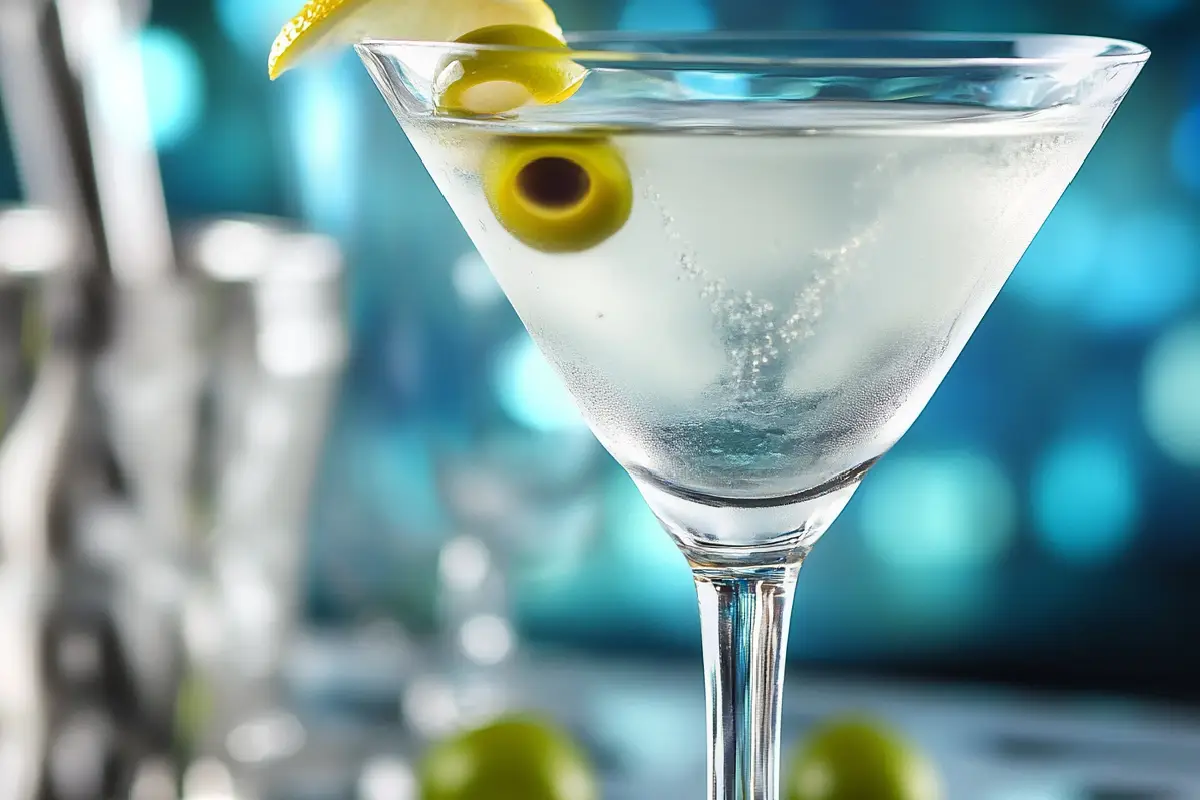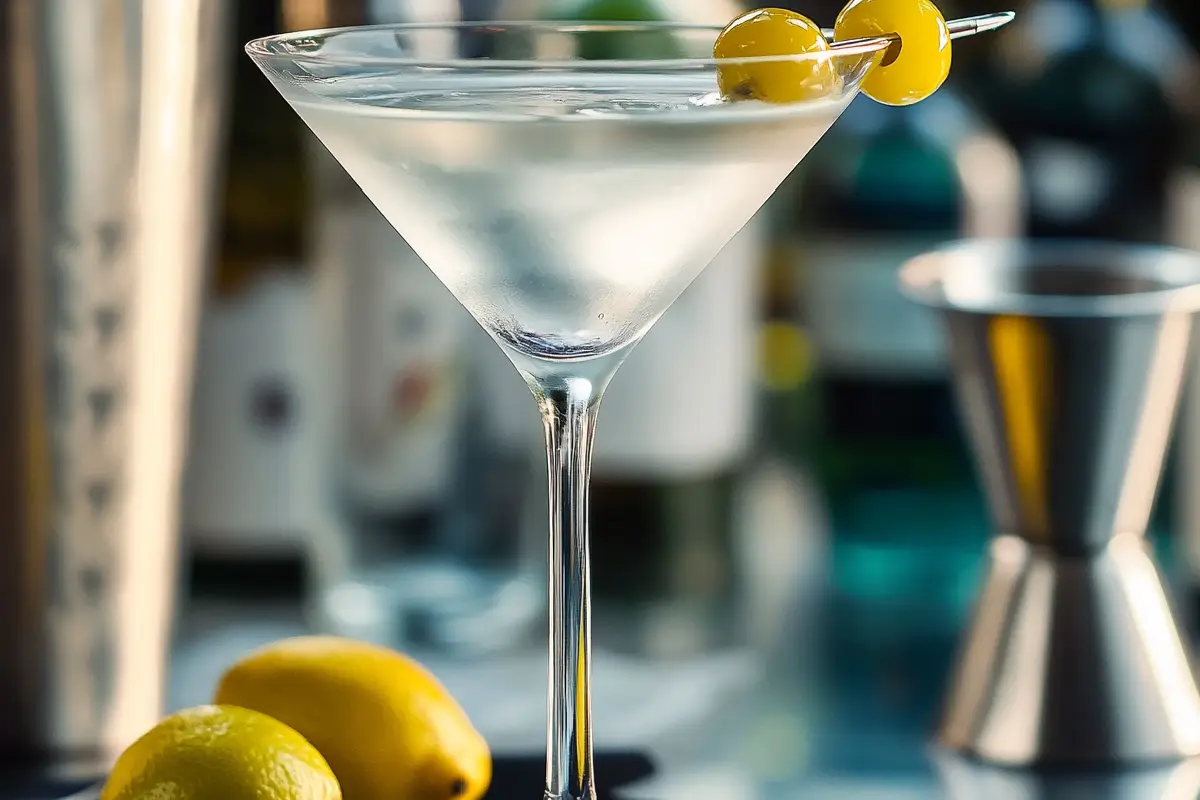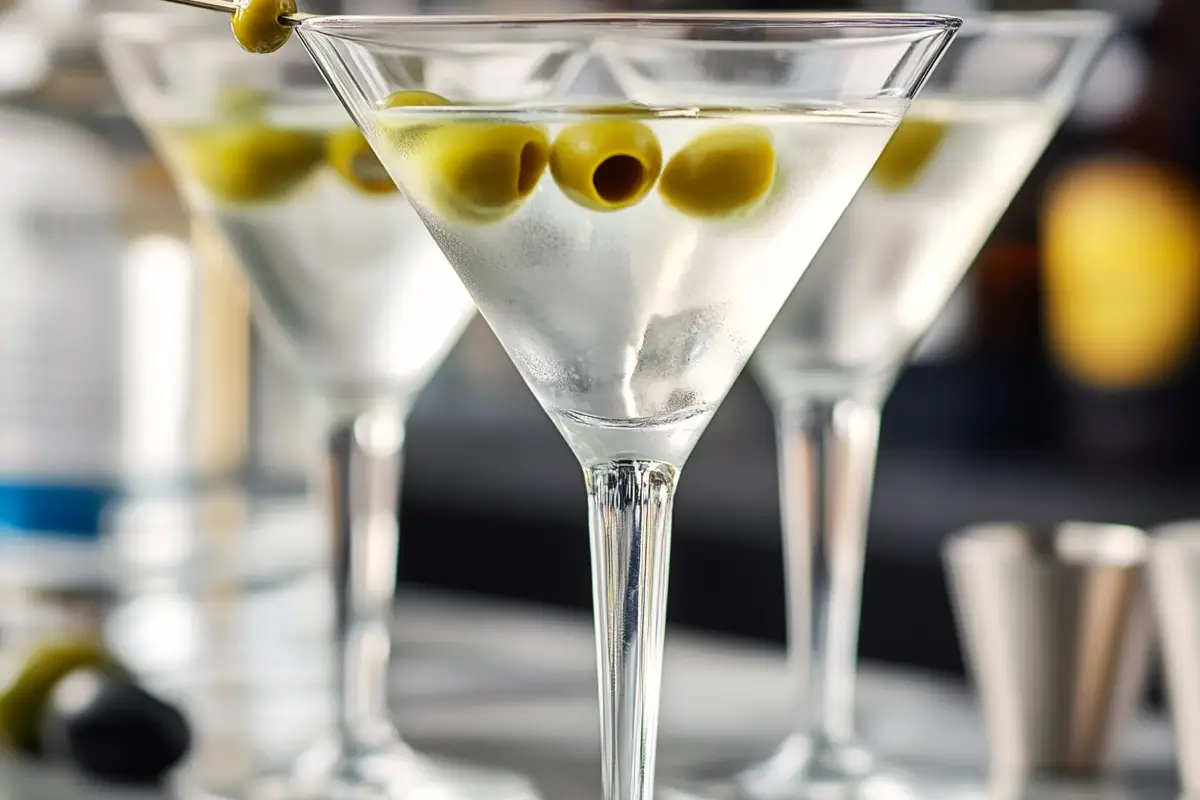Martinis are among the most famous and enduring cocktails in the world. The image of a crisp martini in a sleek glass, complete with an olive or lemon twist, is synonymous with elegance and sophistication. However, when you dive deeper into what constitutes a martini, an interesting question emerges: Can a martini be just gin?
The traditional recipe for a martini includes gin or vodka, vermouth, and a garnish. However, there’s a growing trend among some purists and gin enthusiasts to strip this drink down to its bare essentials, leaving out the vermouth entirely and focusing on the core of the martini — the gin. But does removing vermouth disqualify it from being a martini? In this article, we explore the components, history, and variations of the martini and debate whether a martini can truly consist of just gin.
A Brief History of the Martini
The martini has a storied history, with its origins traced back to the late 19th century. Some believe it evolved from the Martinez, a cocktail made with Old Tom gin, sweet vermouth, maraschino liqueur, and bitters. Others argue that it was simply the result of creative bartenders experimenting with gin and vermouth in search of a perfect, balanced cocktail. Either way, by the early 20th century, the martini had cemented its place in cocktail culture as the drink of choice for those seeking a strong yet elegant beverage.
By the 1920s, dry martinis had become the standard, with less vermouth and more gin. The ratio of gin to vermouth became a topic of debate, with some favoring a higher proportion of gin and others preferring a more balanced mix. Eventually, variations emerged that omitted vermouth altogether or used it sparingly — leading to the question we ask today: Can a martini be just gin?
The Classic Martini: Gin and Vermouth

The traditional martini is built on two key ingredients: gin and vermouth. Vermouth is a type of fortified wine flavored with a variety of botanicals, including herbs, spices, and roots. Its purpose in a martini is to complement the botanical complexity of the gin and add subtle layers of flavor.
Typically, a classic martini follows a ratio of two parts gin to one part vermouth. However, as tastes evolved, many drinkers started asking for less vermouth, resulting in what we now call the dry martini.
- Wet Martini: A traditional martini with equal or near-equal parts gin and vermouth.
- Dry Martini: A martini with more gin than vermouth, usually at a ratio of 5:1 or higher.
- Extra Dry Martini: A martini made with little or no vermouth, allowing the gin to take center stage.
So, what happens when we remove the vermouth entirely? Are we left with a martini, or just a glass of chilled gin?
The Naked Martini: Gin-Only Purity
Enter the naked martini — a martini made solely with gin, no vermouth, and sometimes garnished with an olive or lemon twist. This minimalist take on the martini is popular among gin aficionados who want to experience the full, unadulterated flavor of their favorite gin without the interference of vermouth.
For those who love the clean, crisp taste of gin, a naked martini offers a pure and bold experience. Without vermouth, the botanicals in the gin are front and center, providing an intense and flavorful sipping experience. This version of the martini may not adhere strictly to the traditional definition, but it holds appeal for those who believe that less is more when it comes to ingredients.
Why Gin Can Stand Alone
The secret to a successful naked martini lies in the complexity of the gin itself. Unlike vodka, which is neutral in flavor, gin is a spirit that derives its character from botanicals, primarily juniper berries, but also including ingredients like citrus peel, cardamom, coriander, and angelica root. The intricate blend of botanicals gives gin a depth of flavor that can be enjoyed on its own, making it a versatile base for cocktails.
By eliminating vermouth, the botanicals in the gin become more pronounced, and the drinker is able to fully appreciate the nuances of the spirit. In fact, many gin enthusiasts argue that a naked martini is the purest expression of gin in a cocktail.
Martini Variations: Beyond Vermouth
While the classic martini calls for gin and vermouth, there are numerous variations that tweak this formula to create new flavor profiles. Some of the most popular martini variations include:
- Dirty Martini: In this variation, olive brine is added to the gin and vermouth, giving the drink a salty, savory kick. Some drinkers prefer to use olive brine in place of vermouth, which creates a different kind of balance altogether.
- Vesper Martini: Made famous by James Bond, the Vesper is a mix of gin, vodka, and Lillet Blanc, a type of fortified wine. This martini variation brings both spirits together in a strong, potent blend.
- Gibson Martini: Similar to the classic martini, but garnished with a pickled onion instead of an olive or lemon twist, the Gibson adds a tangy, umami note to the drink.
Each of these variations highlights different ways the martini can be tailored to individual preferences, but they also underscore the flexibility of the cocktail. While some prefer to add ingredients like olive brine or Lillet Blanc, others take the opposite approach, stripping the drink down to just gin — as seen in the naked martini.
The Role of Vermouth: Necessary or Optional?
The question of whether vermouth is necessary in a martini has been debated for decades. For many, vermouth is an essential component that balances the botanicals in the gin and provides a smooth, slightly sweet finish to the cocktail. Without vermouth, some argue, the martini becomes overly strong and one-dimensional.
However, others believe that vermouth can be optional, particularly if the gin being used is of high quality. A well-made gin with complex flavors can stand on its own, and the absence of vermouth allows those flavors to shine.
Ultimately, the decision to include or omit vermouth comes down to personal preference. Some drinkers enjoy the bite of a naked martini, while others prefer the balance and softness that vermouth provides. Either way, the martini remains a versatile cocktail that can be adapted to suit different tastes.
Modern Martini Trends: A Return to Simplicity
In recent years, there has been a trend toward minimalism in cocktail culture. Bartenders and home mixologists alike are experimenting with simpler, stripped-down versions of classic cocktails, focusing on high-quality ingredients and precise techniques. This has led to a resurgence of interest in the naked martini, as well as other gin-focused cocktails.
The growing popularity of craft gin has also played a role in this trend. With so many small-batch gins now available, each with its own unique blend of botanicals, drinkers are increasingly seeking out ways to showcase the spirit’s natural flavors. A naked martini is an ideal way to do this, as it allows the gin to take center stage without any distractions.
How to Make a Naked Martini
Making a naked martini is incredibly simple. Here’s a basic recipe to get you started:
Ingredients:
- 2 ½ oz gin
- Ice
- Garnish: olive or lemon twist (optional)
Directions:
- Fill a mixing glass with ice and add the gin.
- Stir well to chill the gin.
- Strain into a chilled martini glass.
- Garnish with an olive or lemon twist, if desired.
This recipe can be adjusted to your liking. If you prefer a stronger drink, you can add more gin. If you want a touch of sweetness, try adding a few drops of orange bitters.
The Debate: Is It Still a Martini?
So, can a martini be just gin? The answer depends on who you ask. For some, a martini without vermouth is missing an essential component and is therefore incomplete. For others, a martini is defined more by its preparation and presentation than by its ingredients.
The beauty of the martini is its adaptability. Whether you prefer it with gin and vermouth, or you enjoy the simplicity of a naked martini, there’s no right or wrong way to make this classic cocktail. What matters most is that it suits your personal taste.
FAQs
Is a Martini Just Gin?
A traditional martini is made with gin (or vodka) and vermouth. However, a naked martini, which consists solely of gin, is a popular variation that omits the vermouth. Whether or not this is considered a “true” martini depends on personal preference, but many people enjoy the simplicity and bold flavor of a gin-only martini.
What Is a Dry Martini?
A dry martini contains very little vermouth, usually at a ratio of 5:1 or higher. The result is a martini that highlights the gin while still incorporating a touch of vermouth for balance. Some drinkers prefer their martinis “extra dry,” meaning little to no vermouth at all.
Does a Martini Need Vermouth?
While vermouth is a traditional ingredient in martinis, it is not strictly necessary. Many variations, including the naked martini, omit vermouth entirely, focusing instead on the flavors of the gin. Whether or not to include vermouth is a matter of personal preference.
What’s the Difference Between a Naked Martini and a Dry Martini?
A dry martini still contains some vermouth, but in smaller amounts than a traditional martini. A naked martini, on the other hand, contains no vermouth at all — it’s just gin.
Conclusion

In the end, can a martini be just gin? The answer is yes — if that’s how you like it. The martini is one of the most versatile cocktails out there, and its simplicity allows for endless customization. Whether you’re a fan of the classic martini with vermouth or you prefer the bold, unadulterated flavor of a naked martini, there’s no wrong way to enjoy this timeless drink.

